Overhaul (24 page)
Authors: Steven Rattner

President George W. Bush and Treasury Secretary Hank Paulson smiled outside the Treasury on the October 2008 day Congress passed
TARP,
the $700 billion financial rescue fund. Tens of billions of those dollars would soon flow to automakers.
AP Images/Charles Dharapak
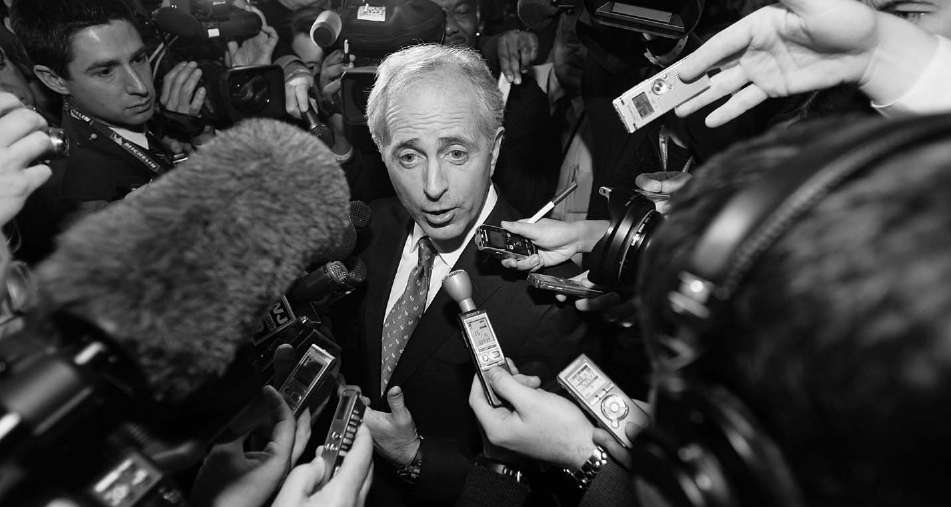
With GM and Chrysler teetering, the Senate could not muster the votes for a bailout, but Bob Corker, the Republican junior senator from Tennessee, emerged as the unlikely architect of tough guidelines adapted by Bush and later Obama. AP Images/Carlos Osorio
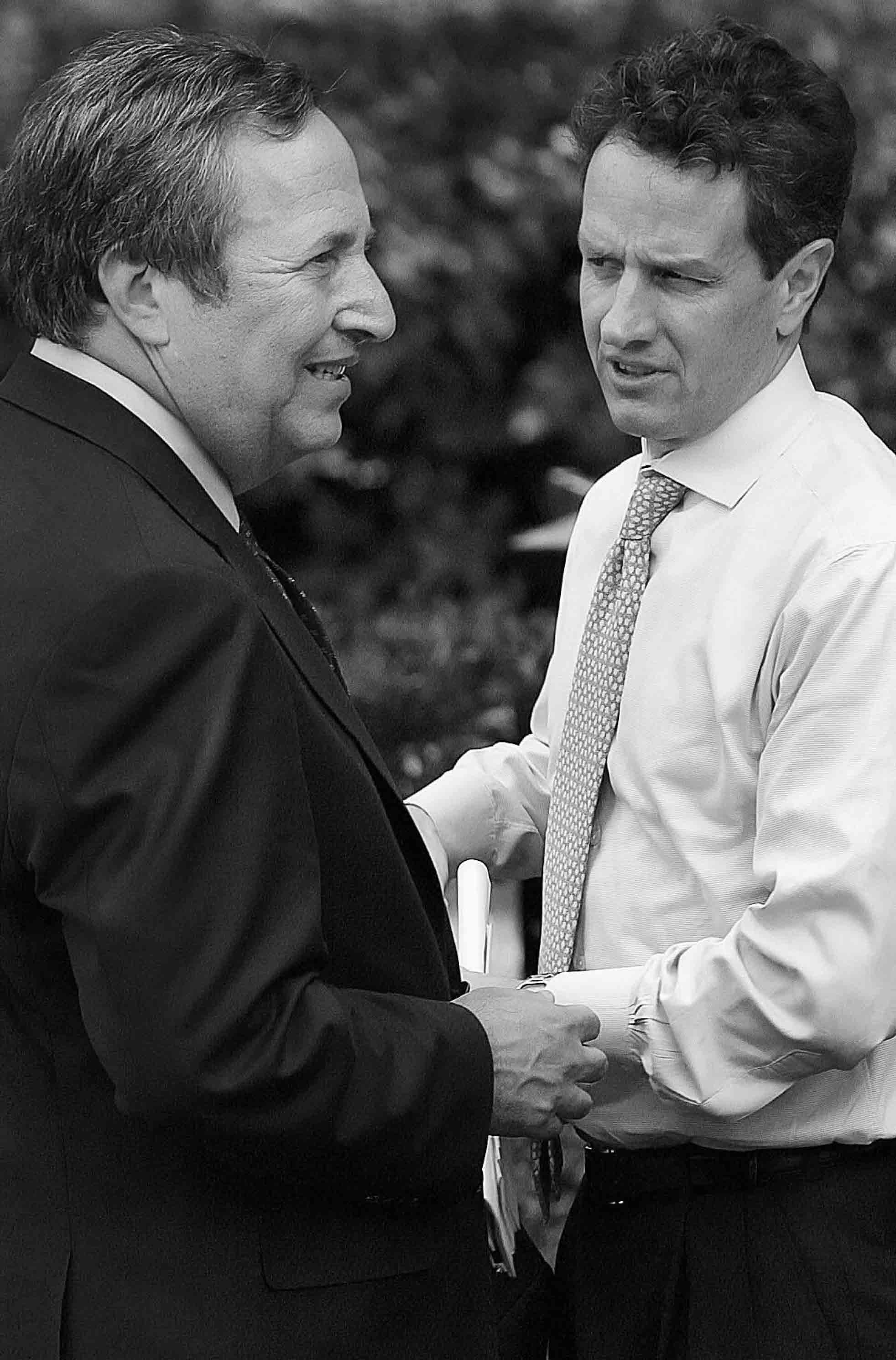
I was intrigued by the dynamic between Summers (left) and Treasury Secretary Tim Geithner, who jointly oversaw our task force. Tim had been Larry's protégé in the Clinton administration, yet their styles were different. Tim was a man of few words, Larry a man of many. Tim was organized and low-key; Larry was more chaotic but his intense interest in autos thrilled us. Stephen Crowley/The New York Times/Redux
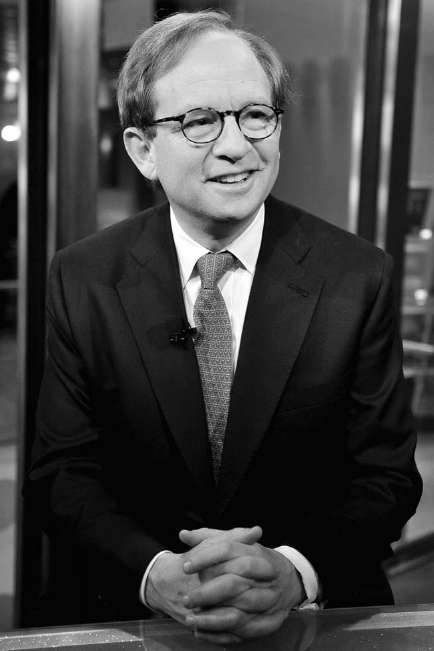
A big flap erupted when I was named what the media kept calling the "car czar." Critics asked, what did a financier know about making cars? So I needed a deputy who could balance my Wall Street credentials with credibility in Detroit: Ron Bloom, who had served as chief restructuring officer for the United Steelworkers. (Above, me in a March 2009 TV interview; below, Ron at a Senate hearing in June.) Jay Malin/Bloomberg News/Getty Images; AP Images/Susan Walsh
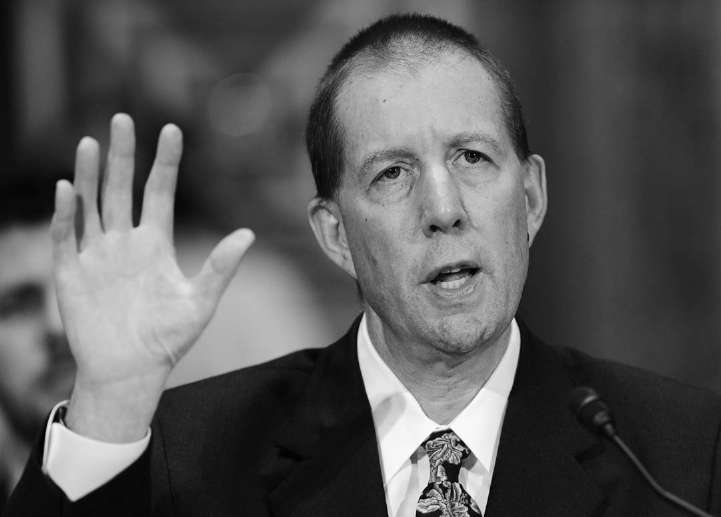
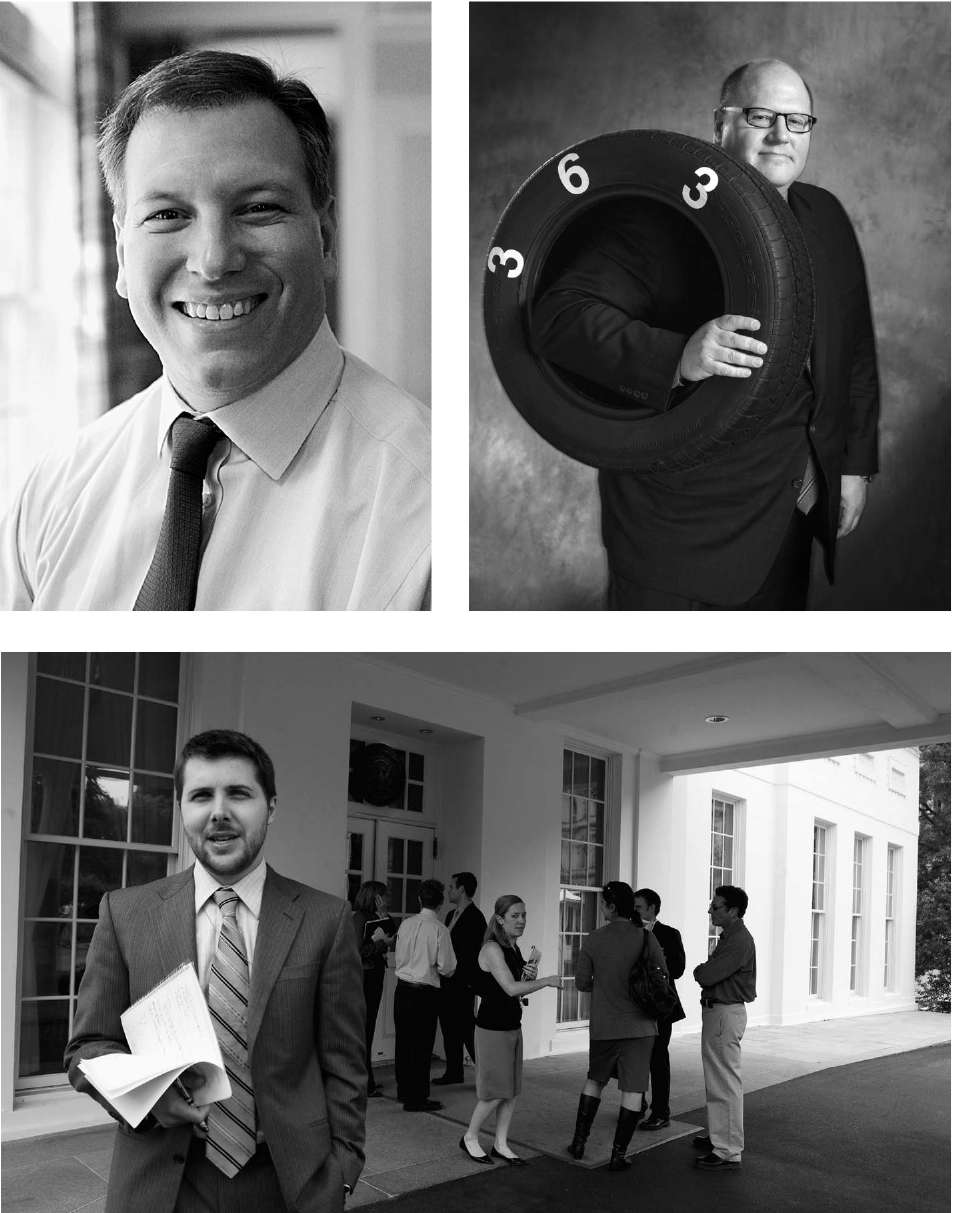
America's biggest, fastest industrial restructuring depended on Harry Wilson, who quarterbacked the overhaul of GM; Matt Feldman, our resident genius of bankruptcy law (the image is from
American Lawyer
magazineâthe 363 on the tire refers to the section of the bankruptcy code whose application by Matt was groundbreaking); and Brian Deese, who secured for Team Auto a foothold in the White House (that's the entrance to the West Wing behind him) and contributed his policy expertise.
Courtesy of Harry Wilson; Paul Godwin; Stephen Crowley/The New York Times/Redux
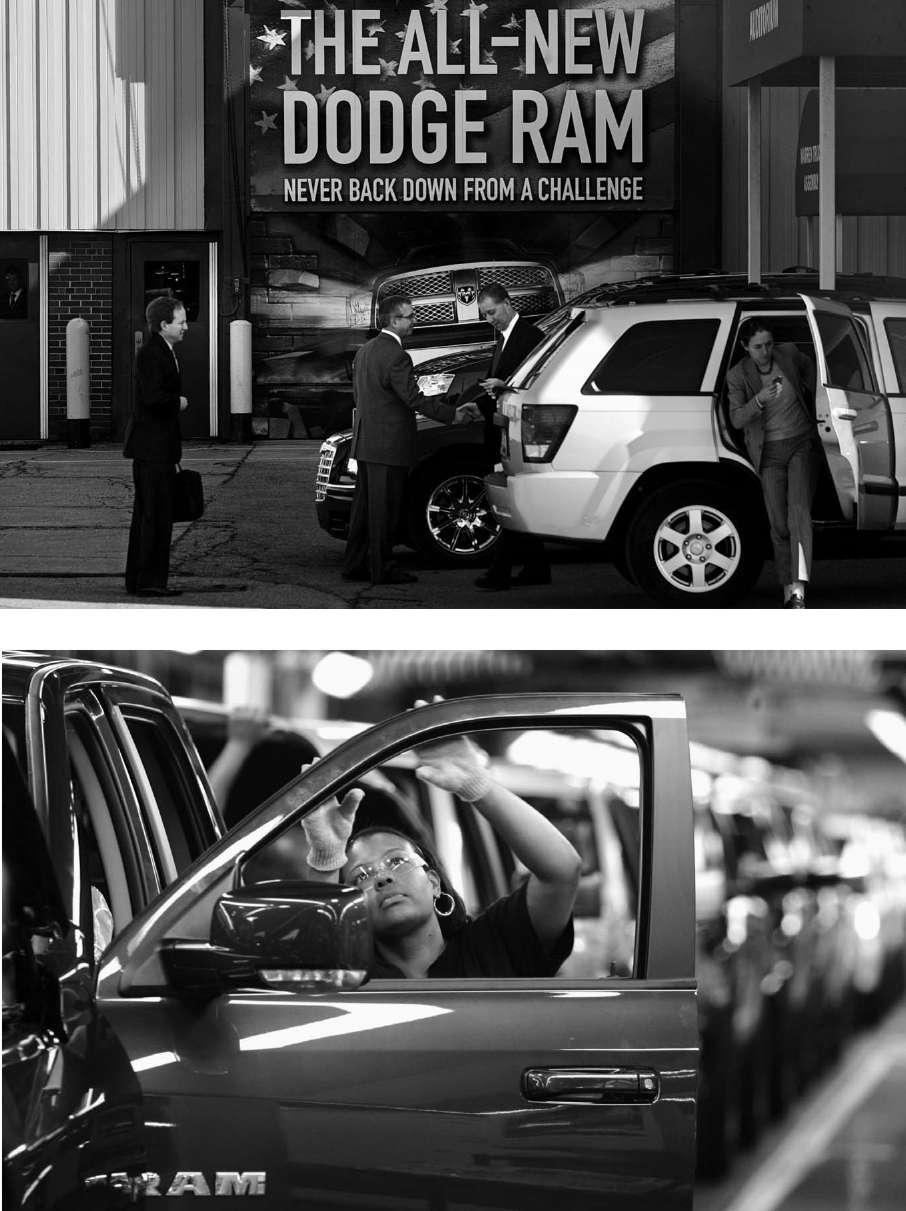
Team Auto's whirlwind tour of Detroit on March 9, 2009, included a visit to a Dodge Ram assembly plant. That's Diana Farrell of the task force at right, Ron Bloom (center, right) shaking hands with a Chrysler official, and me (left) fretting that we were running late. Seeing the assembly workers whose jobs were in jeopardy was a sobering reminder of the gravity of our task; I thought of them often in the ensuing months. Marcin Szczepanski/Detroit Free Press/MCT/Landov; AP Images/Carlos Osorio
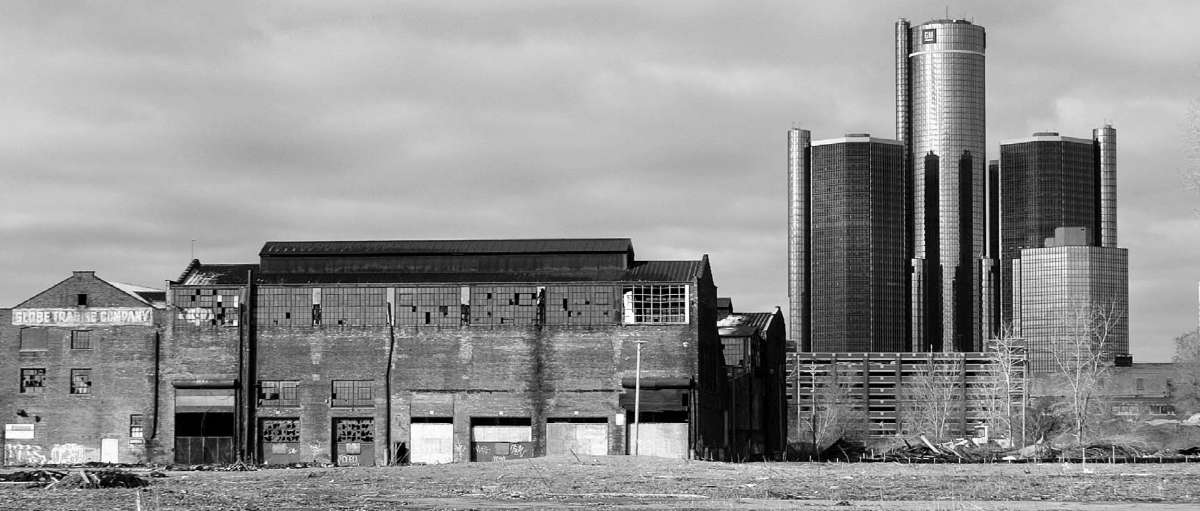
General Motors world headquarters in Detroit's Renaissance Center, seen from a mostly abandoned warehouse district. As both city and company crumbled, GM's leaders reigned in splendid isolation from a thirty-ninth-floor
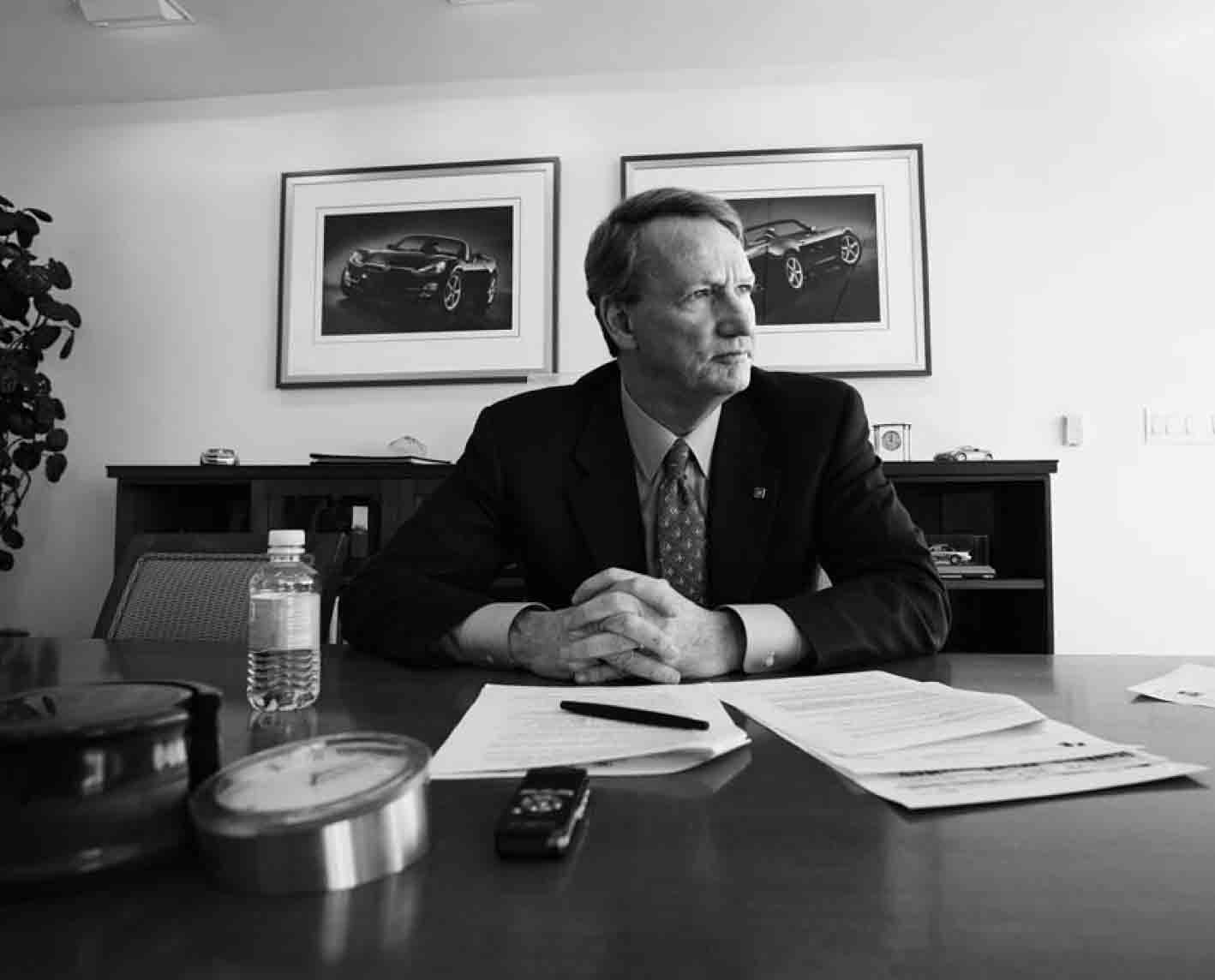
General Motors Chairman and CEO Rick Wagoner in his Detroit office on March 19, 2009, three days after our first one-on-one meeting.
Fabrizio Costantini/Bloomberg News/Getty Images
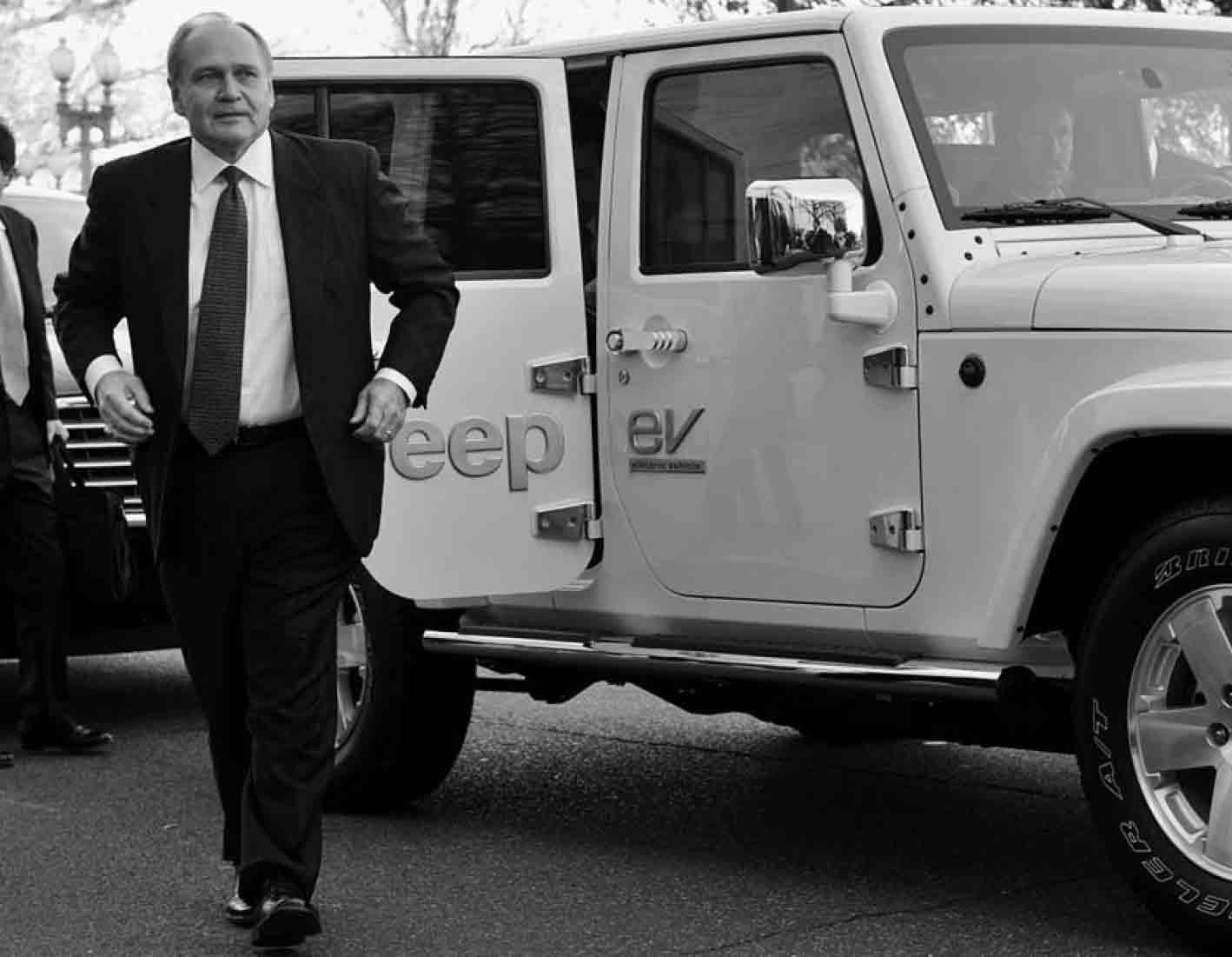
Bob Nardelli, chairman and CEO of Chrysler, on his way to a Senate hearing in December 2008.
AP Images/Kevin Wolf
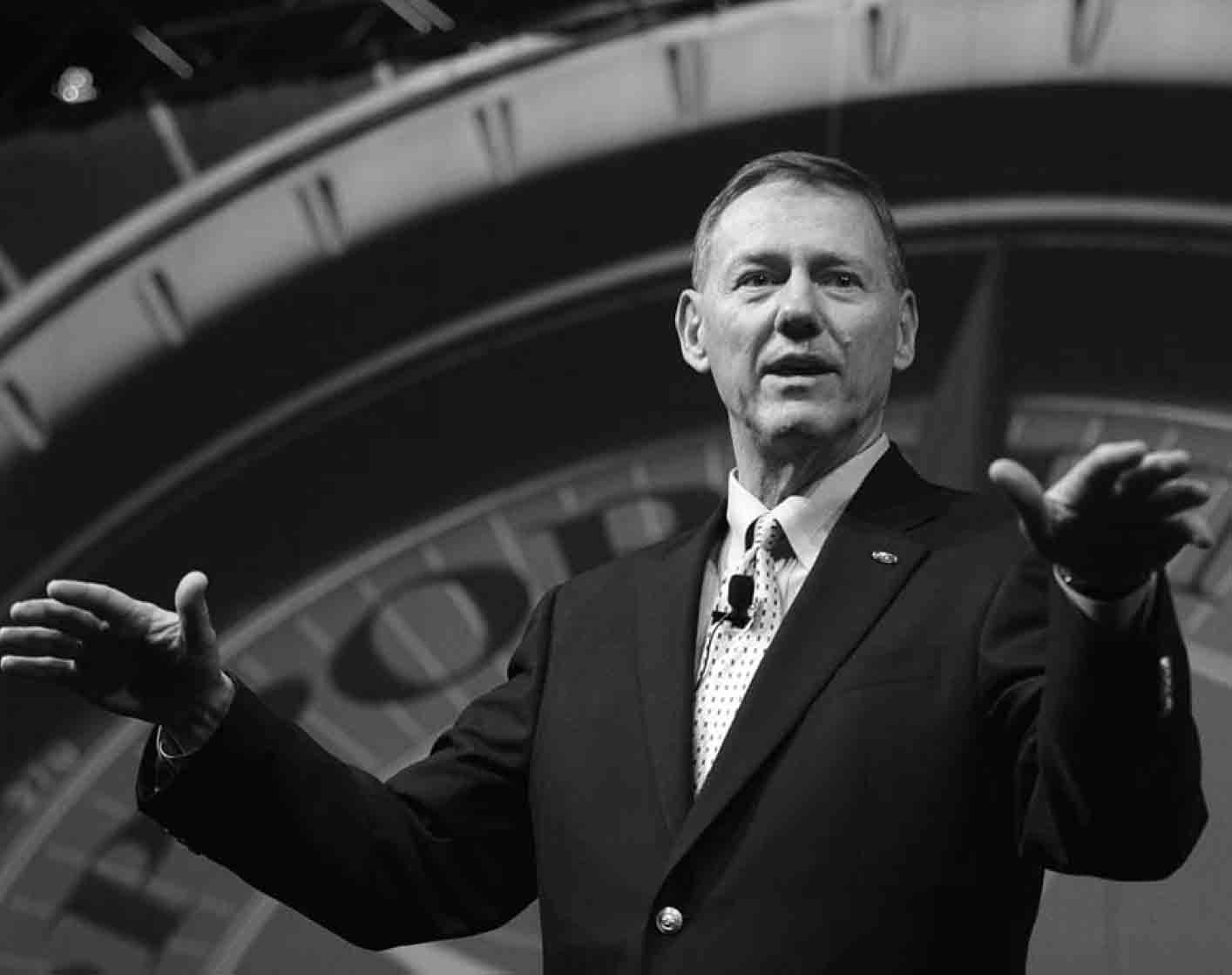
Ford Motor Company CEO Alan Mulally at an international automotive congress on January 12, 2010, in Detroit. Under his leadership, Ford avoided bankruptcy and didn't need a bailout; he is the only one of the three who still has his job.
Bill Pugliano/Getty Images
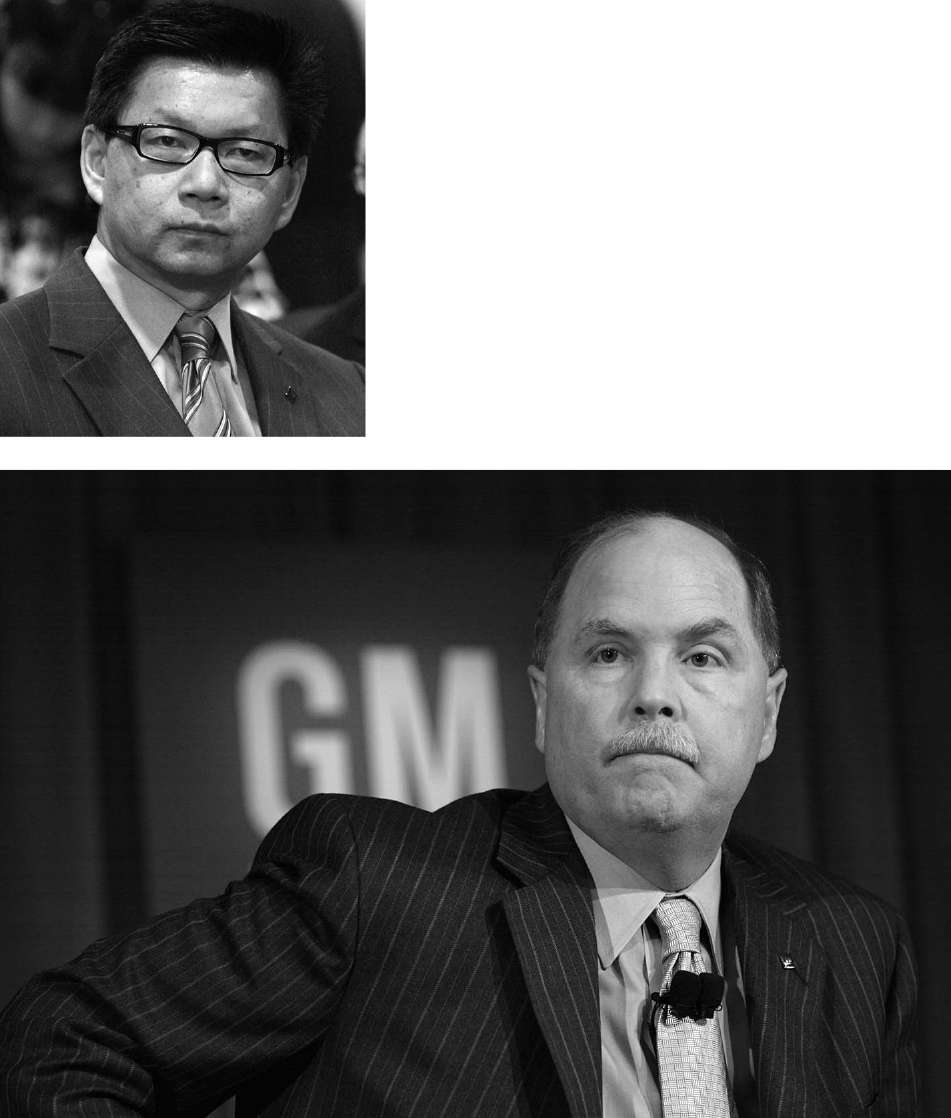
The strain of multibillion-dollar negotiations showed on the faces of five men, all very different, who were key players in the crisis: Ray Young, GM's hapless chief financial officer; Fritz Henderson, who after working at GM for his entire career served as CEO for 247 days; Ron Gettelfinger, chief of the United Auto Workers; Sergio Marchionne, Fiat's hot-tempered CEO, designated by Barack Obama as Chrysler's last hope; and Jimmy Lee of JPMorgan, who was obliged on his trips to Washington to forgo the corporate jet and ride the Acela.
